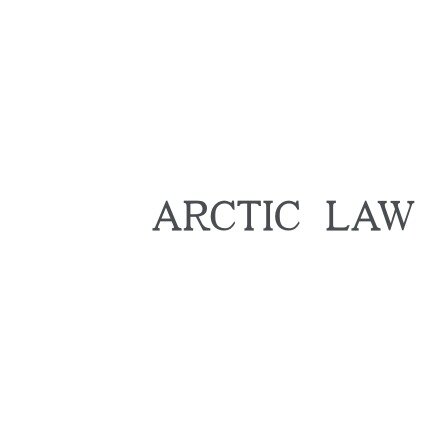Best Nonprofit & Charitable Organizations Lawyers in Greenland
Share your needs with us, get contacted by law firms.
Free. Takes 2 min.
Or refine your search by selecting a city:
List of the best lawyers in Greenland
About Nonprofit & Charitable Organizations Law in Greenland
Nonprofit and charitable organizations play a vital role in communities across Greenland by addressing various social, educational, and cultural needs. The legal framework governing such organizations in Greenland seeks to balance the flexibility required for their formation and operation with necessary oversight to ensure accountability and transparency. These organizations generally operate under regulations that define their structure, purpose, and obligations, which can include reporting requirements and certain operational restrictions, depending on their nature and size.
Why You May Need a Lawyer
Engaging a lawyer experienced in nonprofit and charitable organization law can be crucial for a variety of reasons. Establishing a nonprofit requires navigating complex legal documents and compliance issues. Other common situations where legal assistance might be needed include: ensuring compliance with local regulations, managing nonprofit governance issues, handling employment laws within the organization, addressing donor agreements, and resolving conflicts within or involving the organization. Legal guidance helps ensure that nonprofit missions are pursued effectively and legally, mitigating risks that could lead to costly disputes or penalties.
Local Laws Overview
Greenland’s approach to legislating nonprofit and charitable organizations focuses on maintaining their integrity while fostering an environment where they can thrive. Key aspects of the local laws include:
- Formation and Registration: Guidelines for the legal structuring of nonprofits, including registration processes that may involve municipal and national authorities.
- Tax Exemptions: Criteria for qualifying as a tax-exempt entity, and the obligations that come with maintaining this status.
- Financial Reporting: Requirements for financial transparency and auditing to ensure accountability in the handling of donations and other revenues.
- Governance Standards: Stipulations on board structure and duties to ensure proper oversight and decision-making.
- Employment Law Compliance: Adherence to Greenland’s employment laws, which can include distinct regulations for nonprofits.
Frequently Asked Questions
What is the process for starting a nonprofit organization in Greenland?
The process involves several steps, including defining your mission, creating a board of directors, drafting a constitution or bylaws, and registering with the relevant authorities to obtain legal recognition.
Do nonprofit organizations in Greenland pay taxes?
Many are eligible for tax-exempt status, but they must meet specific criteria set by Greenland’s tax authorities. It's important to comply with these rules to maintain exempt status.
What are the annual reporting requirements for nonprofits in Greenland?
Nonprofits are typically required to submit annual financial reports and may need to be audited by a certified accountant, depending on their size and scope of operation.
Can a Greenland nonprofit engage in commercial activities?
Yes, but any income derived from commercial activities must be directed towards the organization’s nonprofit objectives, not for private benefit.
How are board members selected for a nonprofit in Greenland?
Selection is usually governed by the organization’s bylaws and can vary, but often involves election by existing members or stakeholders.
What are the main governance responsibilities of a nonprofit board?
The board is responsible for overseeing the organization’s operations, ensuring it adheres to its mission, managing finances, and complying with legal obligations.
How can a nonprofit protect itself legally?
By implementing solid governance practices, maintaining accurate records, complying with local laws, and, where necessary, seeking legal guidance to proactively address potential issues.
Can foreign nationals serve on the boards of Greenlandic nonprofits?
Generally, there are no specific restrictions, but it's wise to check the organization’s bylaws and local laws for any particular provisions.
What legal obligations do nonprofits have towards their employees?
They must comply with all applicable labor laws in Greenland, which cover areas such as employment contracts, wages, workplace safety, and non-discrimination.
What are the consequences of not adhering to reporting requirements?
Failure to comply with financial reporting requirements can result in fines, loss of tax-exempt status, and potential dissolution of the organization.
Additional Resources
For further information and assistance, consider the following resources:
- Greenland Government Resources: Provides official documentation and guidelines relevant to nonprofit operations.
- Local Legal Firms: Many local law firms specialize in nonprofit law and can offer expert consultation.
- Nonprofit Support Organizations: Entities supporting the sector with training, resources, and advocacy.
Next Steps
If you need legal assistance related to nonprofit and charitable organizations in Greenland, consider the following steps:
- Identify Your Needs: Clearly define what legal issues or questions you want to address.
- Consult with Experts: Reach out to lawyers or firms specializing in nonprofit law to gain insights tailored to your situation.
- Gather Necessary Documents: Prepare any relevant documents such as bylaws, financial records, or correspondence, which will help in legal consultations.
- Stay Informed: Regularly update your knowledge on changes in local laws that might affect your organization’s operations.
Lawzana helps you find the best lawyers and law firms in Greenland through a curated and pre-screened list of qualified legal professionals. Our platform offers rankings and detailed profiles of attorneys and law firms, allowing you to compare based on practice areas, including Nonprofit & Charitable Organizations, experience, and client feedback.
Each profile includes a description of the firm's areas of practice, client reviews, team members and partners, year of establishment, spoken languages, office locations, contact information, social media presence, and any published articles or resources. Most firms on our platform speak English and are experienced in both local and international legal matters.
Get a quote from top-rated law firms in Greenland — quickly, securely, and without unnecessary hassle.
Disclaimer:
The information provided on this page is for general informational purposes only and does not constitute legal advice. While we strive to ensure the accuracy and relevance of the content, legal information may change over time, and interpretations of the law can vary. You should always consult with a qualified legal professional for advice specific to your situation.
We disclaim all liability for actions taken or not taken based on the content of this page. If you believe any information is incorrect or outdated, please contact us, and we will review and update it where appropriate.
Browse nonprofit & charitable organizations law firms by city in Greenland
Refine your search by selecting a city.











